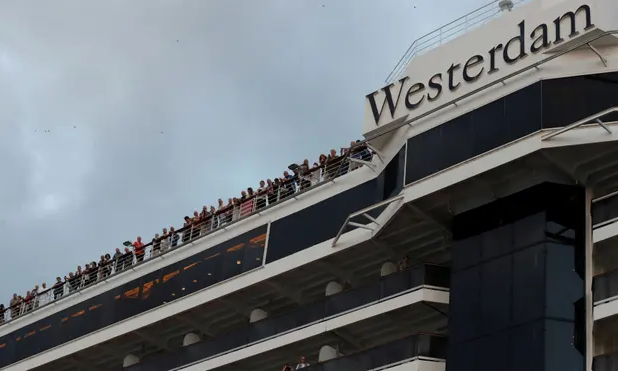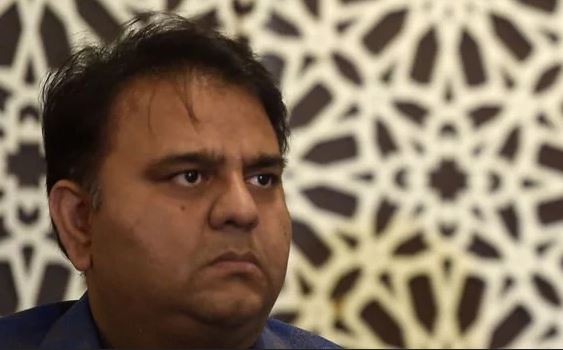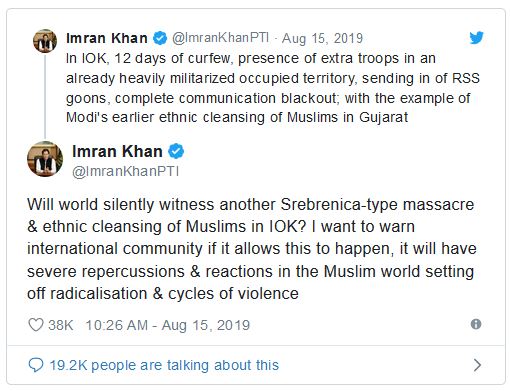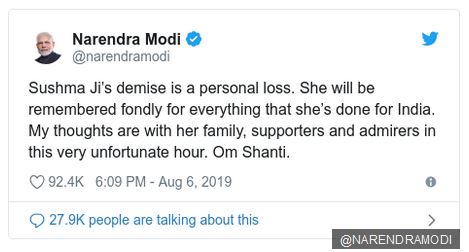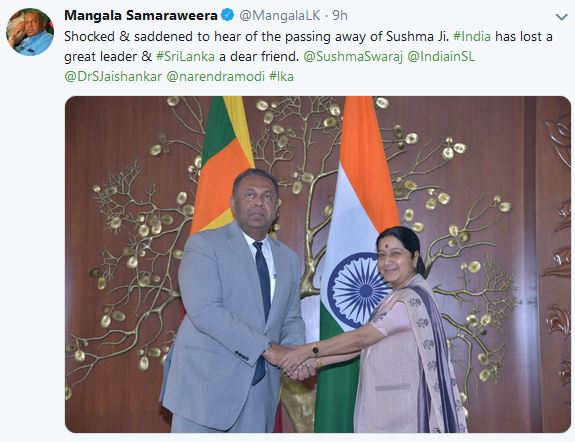World
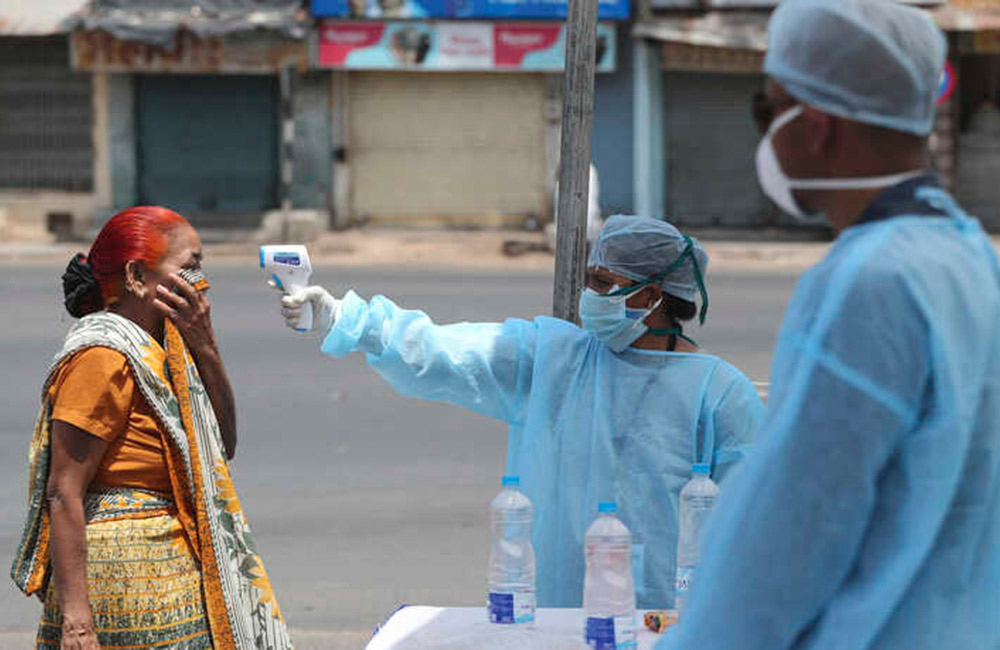
A look at how India is tackling the Coronavirus
For a country of 1.3 billion people, dealing with the COVID pandemic takes immense effort. As of 16 April, there are 12380 confirmed cases; and 414 deaths reported in India. India recently announced the extension of its lockdown to 3rd May but will partially open up industrial, agricultural and allied activities after April 20.
The lockdown that India enforced from 25th March was truly unprecedented. It included, for instance stoppage of the railway passenger services, a first in India’s history as a Republic. But the pre-emptive measure allowed India to ready its infrastructure. Over 500 dedicated COVID hospitals and over 5000 additional health facilities have been readied to deal with infected cases. Indian Railways also come up with an innovative strategy to provide 40,000 isolation beds by converting railway carriages into isolation units.
Evidently, the lockdown has led to positive results. Estimates suggest that without the lockdown and social distancing, India could have had upto 820,000 cases by 15 April. With the lockdown, the count is around 12,000 cases currently. More importantly, the cases are largely localized.
But lockdown is only one of the few measures that India has under taken to mitigate the effect of the COVID pandemic.
In a proactive manner, India started its flight-screening systems from 17 January, a full 13 days before the first case was detected in the country. This was followed by increased screening of passengers, graded travel restrictions and finally full stoppage of international flights. This early screening, before even phase-1 of the infection began in India, gave India a jump start in preparing its system for the pandemic. International organisations like WHO and IMF have acknowledged India’s early responses as proactive, pre-emptive and graded. Sri Lanka, on the other hand, was quite late to introduce screening and even propagated promotional videos saying the island was a afe place for forein travellers to visit even in late February.
During the lockdown, the Indian Government and industry ramped-up production and procurement of essential medical equipment including PPE sets, ventilators and testing kits. As aggressive testing has proved to be the most effective way to combat the spread, the number of laboratories in India went up from 1 in January 2020, to 223 labs now.
Being one of the major pharmaceutical producers of the world India also readied itself to meet the increasing world demand by increasing its pharmaceutical supplies. Even, Women Self Help Groups in rural India have risen to meet the challenge by producing masks, sanitizers and protective equipment.
But this self-imposed lockdown has been not been easy or without its socio-economic costs. Despite efforts from the Government, reverse migration from cities, especially in parts of north and west India could not be stopped. This started several days after the lockdown was initiated. To tackle this wave of migration, the Government built quickly built shelters, food camps in an effort to provide relief to nearly 1.25 million people with the help of Industry and NGOs.
Another challenge is to mitigate the effects on economically weaker sections. Here India took advantage of its vast banking network and online systems to directly transfer money to those in need. USD 22 billion package has been set aside to alleviate the situation of the poor and vulnerable sections, including farmers and labourers. An insurance for nearly 220,000 health care workers has also separately been operationalized to reduce their risk exposure.
While the lockdown is in force in the country, regional and central Government have maintained the continuity of essential services—power supply, water, energy, food products, banking, even delivering essential goods to India's neighbours—at this time. Food relief measures are being provided to nearly 800 million people by providing food grain and lentils for 3 months, while free LPG cylinders are being provided to 80 million poor households.
The people of India, despite the many challenges have responded to the clarion call of lockdown. There was tremendous, enthusiastic response to Prime Minister Narendra Modi’s call to demonstrate appreciation to health workers, light lamps of hope and donations to the Prime Minister’s Citizen Assistance and Relief In Emergency Situation (PM CARES) fund, specially set up to combat the challenges presented by COVID-19.
Recognising that the COVID pandemic is a universal challenge with no simple one-size-fits-all solution to it, State and Local Governments are taking the lead in drafting and executing the response based on the ground situation. As a result, Kerala, Bhilwara in Rajasthan, Srinagar in Jammu and Kashmir have all emerged as efficacious models in stopping the spread through their clockwork precision, immaculate coordination and extreme efficiency.
India has also employed innovative methods for contact tracing. An app called ‘Aarogya Setu,’ which uses location data from persons’ smartphones to tell users if they have been near someone who tested positive for COVID-19, was launched in early April. The App already has more than 10 million subscribers. Efforts have also been made to popularise Yoga and Ayurveda to keep people healthy during lockdowns and boost immunity against other minor disease hence reducing pressure on the health infrastructure.
Despite domestic constraints, medical supplies and assistance is also being provided by India to over 100 countries around the world. On April 07 and April 08 India delivered two gift consignments of essential life-saving medicines to Sri Lanka.

US President Trump recalls Easter bombings in SL
He has said that in recent times, the world has witnessed devastating acts of violence in sacred places of worship and among those incidents, he dhad not, were attacks on Christian churches in Sri Lanka.
“In 2016, an 85-year-old Catholic priest was viciously killed while celebrating mass in Normandy, France. In the past year, the United States endured horrifying anti-Semitic attacks against Jewish Americans at synagogues in Pennsylvania and California. In March, Muslims praying with their families were sadistically murdered in New Zealand. On Easter Sunday this year, terrorists bombed Christian churches in Sri Lanka, killing hundreds of faithful worshippers,” he has said.
President Trump has called on every nation to increase the prosecution and punishment of crimes against religious communities.
“There can be no greater crime than that. This includes measures to prevent the intentional destruction of religious sites and relics. Today, the Trump administration will dedicate an additional $25 million to protect religious freedom and religious sites and relics,” Trump has added.

Coronavirus: Global death toll tops 3000
The global death toll from the new coronavirus epidemic surpassed 3,000 on Monday (Mar 2) after more people died at its epicentre in China, as cases soared around the world and US officials faced criticism over the country's readiness for an outbreak.
The virus has now infected more than 88,000 people and spread to more than 60 countries after first emerging in China late last year.
South Korea, the biggest nest of infections outside China, reported 599 new cases on Monday, bringing its total to 4,335.
With fears of a pandemic on the rise, the World Health Organization urged all countries to stock up on critical care ventilators to treat patients with severe symptoms of the deadly respiratory disease.
The rapid spread of the coronavirus has raised fears over its impact on the world economy, causing global markets to log their worst losses since the 2008 financial crisis.
China's economy has ground to a halt with large swathes of the country under quarantine or measures to restrict travel.
Other countries have started to enact their own drastic containment measures, including banning arrivals from virus-hit countries, locking down towns, urging citizens to stay home and suspending major events such as football matches or trade fairs.
In a stark example of growing global anxiety, the Louvre - the world's most visited museum - closed on Sunday after staff refused to work over fears about the virus.
China reported 42 more deaths on Monday - all in central Hubei province. The virus is believed to have originated in a market that sold wild animals in Hubei's capital, Wuhan.
The death toll in China alone rose to 2,912, but it is also rising abroad, with the second highest tally in Iran with 54, while the United States and Australia had their first fatalities from the disease over the weekend.
The WHO says the virus appears to particularly hit those over the age of 60 and people already weakened by other illness.
It has a mortality rate ranging between two and 5 per cent - much higher than the flu, at 0.1 per cent, but lower than another coronavirus-linked illness, SARS, which had a 9.5 per cent death rate when it killed nearly 800 people in 2002-2003.
But infections are also rising faster abroad than in China now, as the country's drastic measures, including quarantining some 56 million people in Hubei since late January, appear to be paying off.
CASES SOAR ABROAD
After an increase on Sunday, China's National Health Commission reported 202 new infections on Monday, the lowest daily rise since late January. There have been more than 80,000 infections in the world's most populous country.
By contrast, infections are soaring elsewhere.
Four more people died in South Korea, taking its toll to 22.
Infection numbers have surged in recent days and the country's central bank has warned of negative growth in the first quarter, noting the epidemic will hit both consumption and exports.
The figures are expected to rise further as authorities test more than 260,000 people associated with the Shincheonji Church of Jesus, a religious group often condemned as a cult that is linked to more than half the cases.
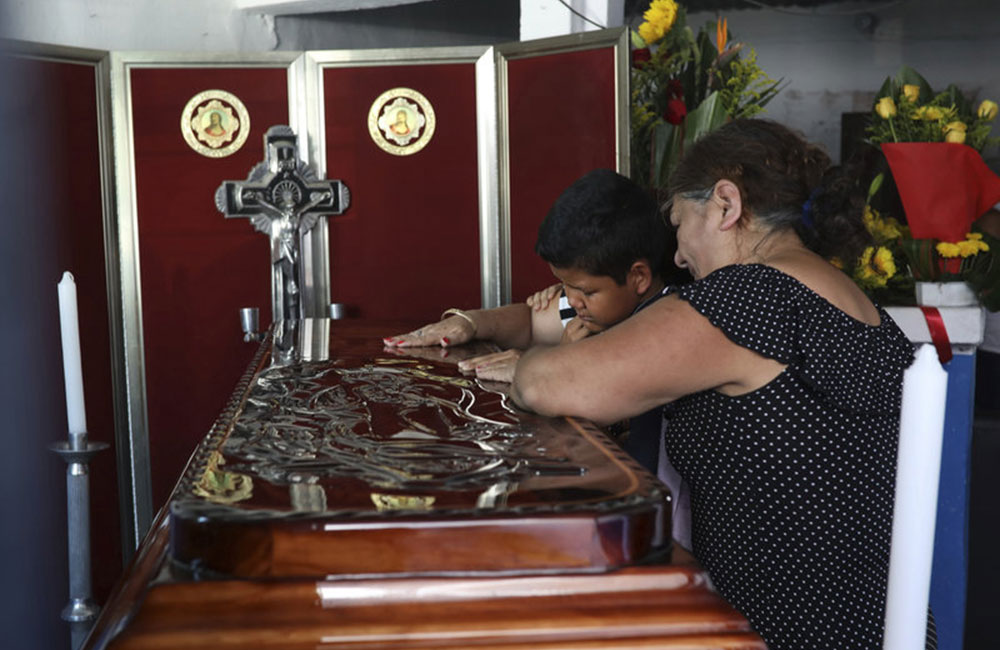
12 journalists killed in Mexico this year; the world's highest toll
Many consider that overall levels of violence and impunity in Mexico are the biggest problems facing Mexican journalists. But press advocates say the president's harsh rhetoric toward the media isn't helping the situation.
So far this year, 12 journalists have been killed, according to Mexico's National Human Rights Commission. Some press rights groups put the number even higher, according to their own reporting criteria.
This summer has been particularly brutal. In late August, 42-year-old Nevith Condés Jaramillo was found stabbed to death in Mexico state. Condés ran a news website there, was a past radio host and posted stories on Facebook and YouTube.
A month earlier, in just one week, three journalists were killed. Two in the southern state of Guerrero, the other in Veracruz.
Among the latest four reporters killed, two had reportedly sought help under Mexico's journalist protection program, which was created in 2012 to aid threatened reporters.
Sara Lidia Mendiola, who runs a legal advocacy organization for journalists called Propuesta Cívica, says the protection program is insufficient. "In the current climate of violence taking over the country, it isn't enough," she says.
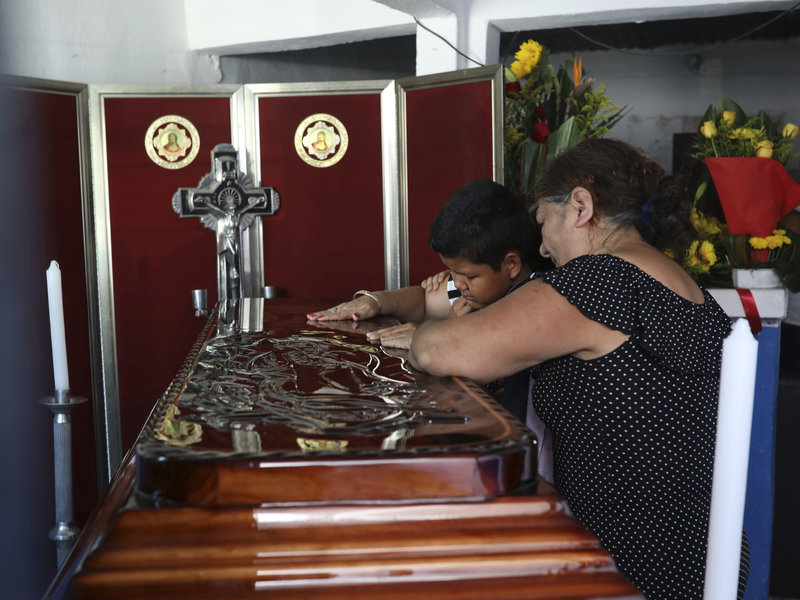
Homicide rates in Mexico have hit record levels, averaging nearly 100 a day from January through June, according to official data. Most are never solved.
"As long as there is not a credible fight against impunity these murders against journalists are not going to stop," Mendiola says. She says an estimated 99% of all journalist homicide cases go unpunished.
Mexico's President Andrés Manuel López Obrador promised to combat violence against journalists and all citizens when he came into office last December. But press advocates says he has made no progress and may be making the situation worse.
Every weekday at 7 a.m., López Obrador gives a news conference that can run over two hours. Occasionally the briefings turn into sparring matches between the president and journalists.
Last month, the president took exception to a question from a reporter with Proceso magazine and launched into a long response about the role of the media. "Proceso has not behaved well with us," López Obrador said.
The reporter Arturo Rodríguez interrupted the president to respond: "The role of the press is not to behave well with any one president, but to inform," he said.
The president often criticizes the media, calling it conservative, out of touch or fifí, slang for elite.
"Such language is very dangerous in a country where the press is so vulnerable," says Homero Campa, an editor at Proceso.
Campa says state and local officials now mimic the president, using the same rhetoric to attack the media. This is especially worrying, press advocates say, given that federal officials have found that journalist murders frequently involve local authorities.
López Obrador defends his tough stance, saying he is calling out sloppy journalists, bad actors and enemies. His Morena party in Congress is looking to reform the law to strengthen protections for journalists. The lead lawmaker in that effort declined NPR's repeated requests for an interview.
Sara Mendiola of Propuesta Cívica says new legislation would be a good step. "But we don't have a lot of hope that things are going to change, one law alone can't do it," she says. The president should change his tone, she adds, and that would help immensely.

Woman let off cruise ship tests positive for Coronavirus
Concerns have been raised over the possible spread of the new coronavirus among hundreds of passengers who disembarked from a cruise ship in Cambodia on Friday, after one of them was confirmed to have the disease following a second test carried out in Malaysia.
Scores of passengers who left the MS Westerdam, which had been at sea for two weeks after leaving Hong Kong on 1 February, have travelled on to other destinations.
The director general of Malaysia’s health ministry, Noor Hisham Abdullah, said he believed further precautions should have been taken when passengers disembarked.
“Only 20 passengers had their tests done. That was what we were told,” he said. “The fact one case is positive, [means] all other passengers [have] exposure.”
After the Westerdam's stop in Cambodia, 236 passengers and 747 crew remain onbboard. Photograph: Soe Zeya Tun/Reuters
Cambodia was praised by the head of the World Health Organization for receiving the ship, which had been turned away by five other countries despite there being no confirmed cases onboard at the time.
The confirmation that an 83-year-old American passenger has since tested positive for the disease after travelling on to Malaysia has prompted questions about whether enough preventive measures have been taken.
Cambodian authorities initially called for the test results to be reviewed by Malaysia, while the ship’s operator, Holland America, described the tests as preliminary. On Sunday the Malaysian authorities confirmed the patient had been tested for a second time and that the results confirmed she had the virus.
Cambodia’s government said its own tests on passengers from MS Westerdam had been done in collaboration with the WHO and the US Centers for Disease Control and Prevention.
The American woman flew to Malaysia with 144 other cruise ship passengers. Only she and her husband showed symptoms. Her husband has since tested negative.

India-Pakistan crisis hots up as minister mocks Modi’s failed space mission attempt
India’s Chandrayaan-2 spacecraft reportedly lost contact after attempting to land on the Moon. The Chandrayaan-2 craft lost contact with the Indian Space Research Organisation (ISRO) just minutes before it was due to land of the Moon.
Following that failed landing attempt, Pakistan’s Federal Minister for Science and Technology, Fawad Chaudhry ridiculed India.
Mr Chaudhry tweeted: “Please sleep. The toy landed in Mumbai instead of landing on the Moon.”
In another tweet, Mr Chaudhry suggested that Pakistan should not “waste money” on the mission.
He also added that the Indian Prime Minister should look to address poverty within his country.
India-Pakistan: Mr Chaudhry hit out at the Indian Prime Minister (Image: GETTY)
Despite the failed space mission, Prime Minister Narendra Modi told the ISRO to be “courageous” in the wake of the mission.
He also stated: “There are ups and downs in life, the country is proud of you.”
The Indian Congress also tweeted out over ISRO’s moon mission.
They said: "The nation stands by the entire team of Isro as we wait in these tense times.
“Your hard work and commitment has made our nation proud."
The conflict between the states emerged following a series of skirmishes and airstrikes over the contested region of Kashmir in February.
Amid the airstrike, Indian pilot Abhinandan Varthaman was captured and was taken prisoner before his eventual release on March 1.
Since then, relations between the two countries have remained incredibly tense.
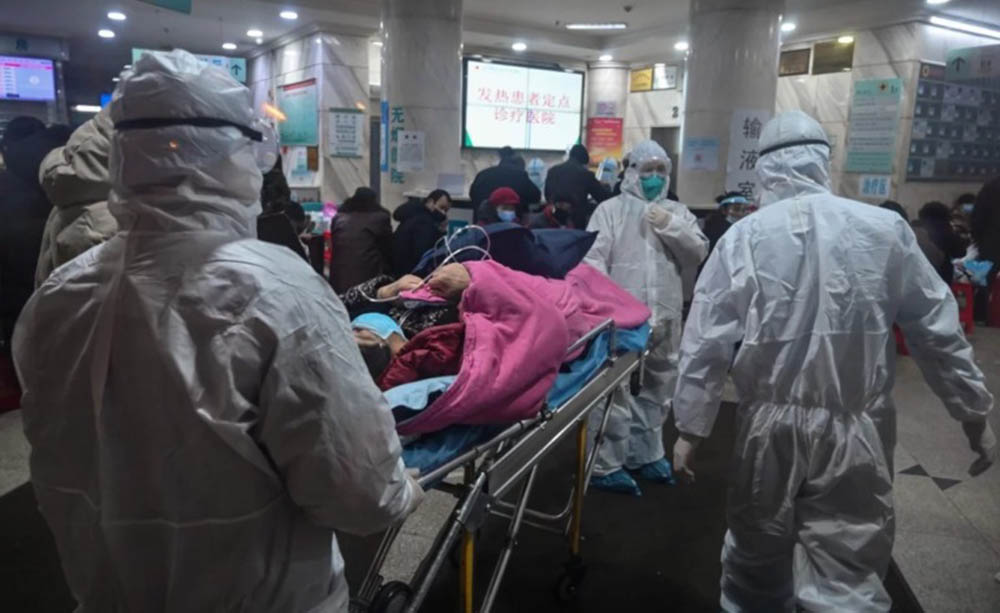
Mayor of Wuhan admits to hiding information about Coronavirus
In a shocking press conference on Sunday (Jan 26th), the mayor of Wuhan, China, Zhou Xianwang has admitted that when they first detected the new coronavirus (2019-nCoV), they hid information about the outbreak. He made this admission on Chinese state television, amidst much criticism from citizens who said that the administration was “sloppy and irresponsible.”
According to WSJ, Zhou said that his hands were tied by what he could disclose and the time it took for the local government to send the information to Beijing, about five million people from Wuhan, ground zero of the virus, had already left the city. This happened before Wuhan was put into lockdown and may have contributed to the speed the virus is spreading across the country and to the other corners of the globe.
Zhou said that based on the rules imposed by Beijing, he could not do anything without approval, as they had to get permission from the central government before fully disclosing information about the virus. “As a local government official, after I get this kind of information I still have to wait for authorisation before I can release it,” Zhou said. “This is one thing people didn’t understand at the time.”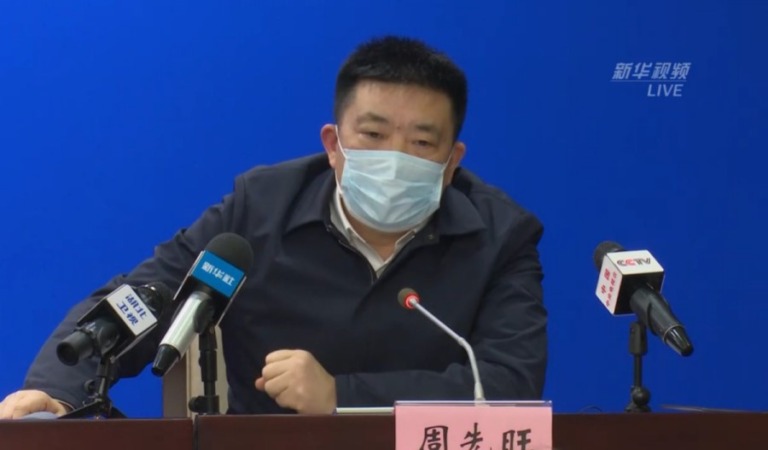
He added that if the people were displeased with him, he was willing to step down, as long as the move is beneficial to control the disease and to people’s lives and safety. He explained that he and Wuhan Communist Party Secretary, Ma Guoqiang was prepared to be judged by history.
“Comrade Ma Guoqiang and I are willing to accept responsibility. If in the end, you say someone has to be held accountable, you say the masses have opinions, then we’re willing to appease the world by resigning,” Zhou said. While the fates of Ma and Zhou are still undecided, it is clear that Chinese netizens are criticising them on how the coronavirus outbreak has been managed.
Currently, the official death toll stands at 132, and there are more than 6,000 cases of infected patients in China. This means that it is more infectious than SARS back in 2002-03. CBS News said that the virus is infectious even though the carrier shows no symptoms, making this even harder to detect. A top British infectious disease specialist said that the actual number of cases around the world could be close to 100,000.
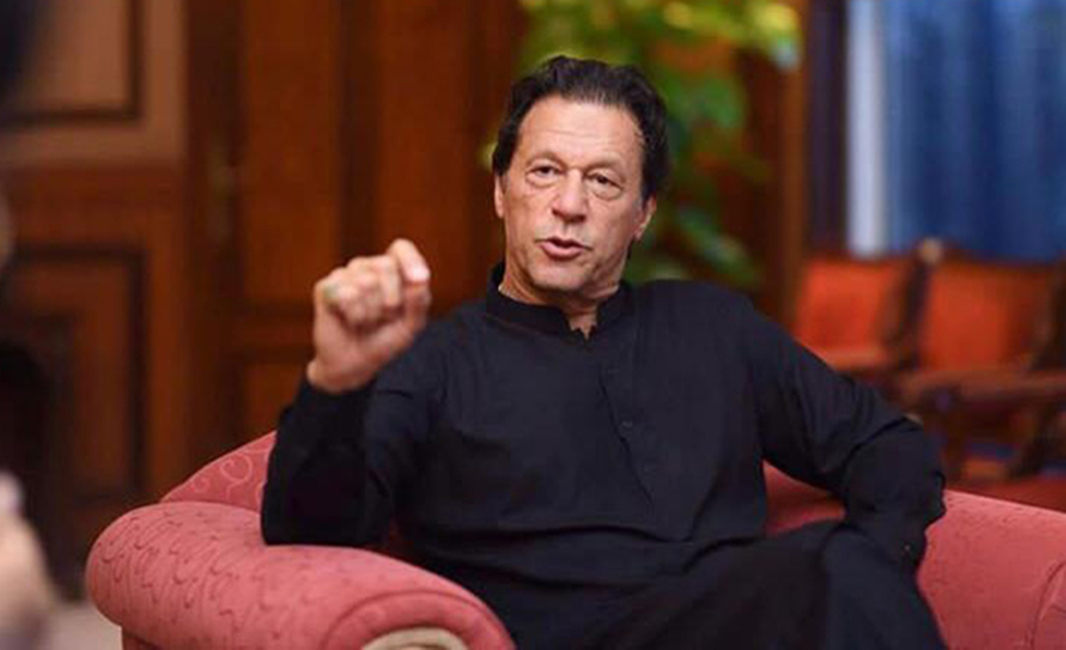
PM Imran warns of severe repercussions of ethnic cleansing in Kashmir
Prime Minister Imran Khan on Thursday warned the international community that its silence on the ethnic cleansing of Muslims in Kashmir would lead to severe repercussions and reactions in the Muslim world.
The prime minister in a post on Twitter said, “In IoK, 12 days of curfew, presence of extra troops in an already heavily militarized occupied territory, sending in of RSS goons, complete communication blackout; with the example of Modi's earlier ethnic cleansing of Muslims in Gujarat.”
Will the world silently witness another Srebrenica-type massacre and ethnic cleansing of Muslims in IoK?, PM Imran asked.
The prime minister added, “I want to warn international community if it allows this to happen, it will have severe repercussions and reactions in the Muslim world setting off radicalisation and cycles of violence.”
The prime minister's tweets come as the curfew and communication blackout entered its 12th day in the occupied valley.
The Indian authorities have been maintaining a strict clampdown in the valley since August 5, after the Bharatiya Janata Party (BJP) led Hindu nationalist government abolished the Indian constitution's Article 370, which granted special status to occupied Kashmir.
The tensions mounted in the disputed valley with unprecedented numbers of Indian troops deployed in the region. Television, telephone and internet links have been suspended and the occupied territory remains cut off from the external world due to the communication blackout.
(Geo-TV)

Global business leaders identify climate change as biggest risk of this decade
The world's business leaders and politicians are sounding the alarm on climate change, citing environmental-related issues as their most significant concerns in the coming decade that could wreak costly economic and societal havoc.
For the first time, climate-related issues dominated the top-five likely risks over the next decade, according to the World Economic Forum's (WEF) new annual "Global Risks Report," which ranks the most urgent risks currently facing the globe.
According to a survey of 750 business leaders, politicians, and academics, they're most worried about extreme weather damaging infrastructure and property and killing people. The report also cites fears of businesses and governments failing to mitigate climate change, human-caused environmental disasters like oil spills and radioactive contamination, biodiversity loss, and major natural disasters.
Just a year ago, the environment was front and center in the WEF’s report, alongside worries about data fraud or theft and cyber attacks.
Børge Brende, the president of the World Economic Forum, expressed "grave concern" for the consequences associated with continued environmental degradation.
"The political landscape is polarized, sea levels are rising and climate fires are burning. This is the year when world leaders must work with all sectors of society to repair and reinvigorate our systems of cooperation, not just for short-term benefit but for tackling our deep-rooted risks," Brende said.
The sobering reality, according to the report, is that there's only a decade to act to mitigate the potentially catastrophic consequences in a meaningful way.
The report highlighted some of the severe economic impacts climate change poses. For example, 200 businesses estimated that it would cost them a combined $1 trillion if there's no action on the issue. The report also cited the possibility of a "2008-style systemic collapse" unless human-caused carbon dioxide emissions fall by 50% by 2030 from 2010 levels, and reach net zero by 2050.
That said, there's also an economic opportunity to come up with solutions and alternatives, but it requires an approach that engages multiple stakeholders.
"Reaching these targets will require serious, interconnected economic and societal transitions at macro and micro levels that depend on technological innovation and commitment from governments and businesses,” the WEF report said.
“So far, however, commitments are inadequate given the urgency of the challenge and current trends are not encouraging," it added.
According to Brende, "the good news is that the window for action is still open, but not for much longer. And, despite global divisions, we continue to see members of the business community signal their commitment to looking beyond their balance sheets and towards the urgent priorities ahead."
The WEF report comes just a day after BlackRock, the world's largest asset manager with $6.84 trillion in assets under management, announced it was making climate change a central part of its investment process and portfolio construction.
CEO Larry Fink, a member of WEF's board of trustees, wrote in his widely-read annual letter that “climate change has become a defining factor in companies' long-term prospects," and that widening public outrage "emphasized the significant and lasting impact that it will have on economic growth and prosperity."
The 67-year-old investor added this is a risk that "markets to day have been slower to reflect. But wariness is rapidly changing, and I believe we are on the edge of a fundamental reshaping of finance."
The Forum noted that “as today’s youth demand jobs that are compatible with their concern about climate change, workforce climate activism may become more common, and companies without strong environmental credentials could struggle for talent.”
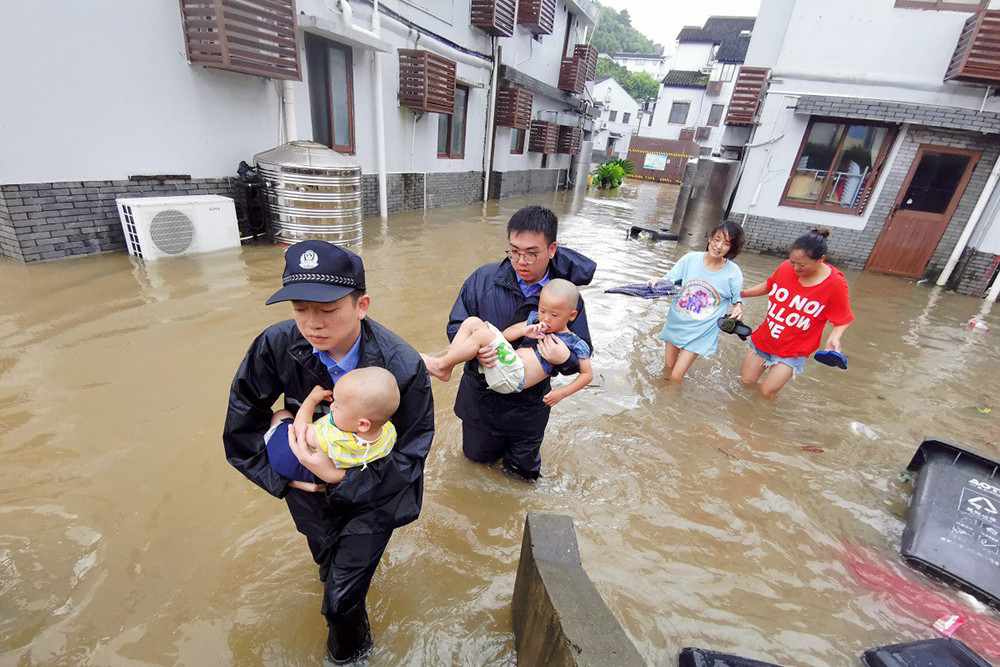
Typhoon Lekima: Death toll hits 49 in China
(AFP) - The death toll from Typhoon Lekima rose to 49 on Tuesday and 21 were still missing after the monster storm wreaked havoc on China's eastern coast, causing huge damage with strong gales and torrential rain.
Lekima hit the three Chinese provinces of Zhejiang, Shandong and Anhui over the weekend and forced more than a million residents to flee.
China's official news agency Xinhua said late Monday that at least 49 people are dead with dozens still missing.
Footage on state broadcaster CCTV showed flooded fields and streets, submerged vehicles, scattered debris and trees blown over as strong winds and rain pounded cities along the seaboard.
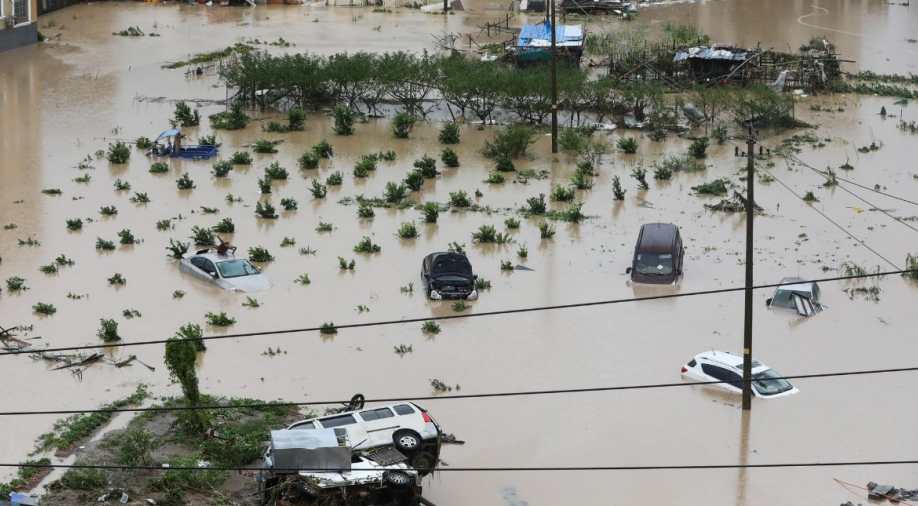
Lekima, China's ninth typhoon of this year, made landfall early on Saturday in the eastern province of Zhejiang / Reuters.
Lekima made landfall in Zhejiang province on Saturday, which bore the brunt of the damage after the storm hit with winds of nearly 190 kilometres per hour (120 miles per hour) and pounded the coast with waves several metres in height.
Xinhua said the rainfall recorded this weekend in Shandong province was the largest since records began in 1952.
The natural disaster has inflicted economic losses of at least 26 billion yuan (US$3.7 billion), authorities said.
Rescue workers were shown on CCTV using boats and rope pulleys to carry out stranded residents over the weekend.
Thousands of flights were cancelled and train routes disrupted due to the typhoon, the state broadcaster reported, as Beijing, Shanghai and other major cities grounded planes.
Hundreds of tourist sites along the coast, including Shanghai Disneyland, were closed ahead of the storm.
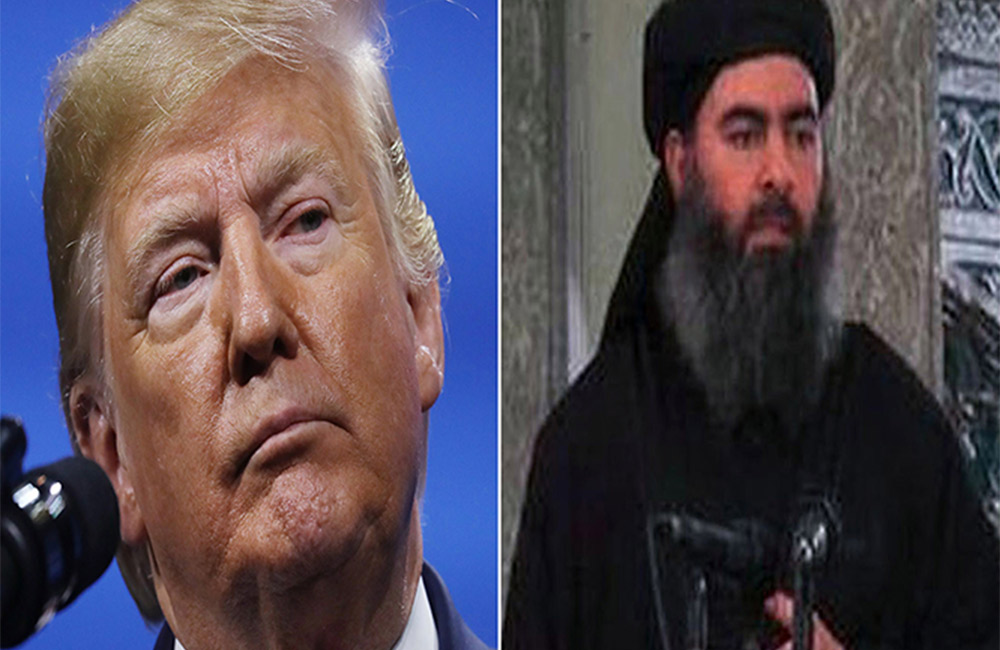
'All we have are Trump’s words': UN isn’t confirming elimination of IS chief al-Baghdadi
The US President’s statement on the death of Abu Bakr al-Baghdadi sounded confident, but the United Nations is still unable to confirm the death of the Islamic State leader for lack of proof, a high-ranking UN official has said.
The UN Monitoring Team on terrorist groups is going to put questions to the US and other involved parties to clarify the fate of al-Baghdadi, Edmund Fitton-Brown, a British diplomat who coordinates the team, told RIA Novosti news agency.
“All we have so far is the public announcement from the Americans, but it does seem like a very confident announcement. They seem very sure of themselves. They claim that they have verified it… So, I think that should be taken very seriously.”
However, Fitton-Brown pointed out that Washington “would be setting themselves up to a considerable embarrassment” if the report on the death of Islamic State (IS, formerly ISIS/ISIL) chief turns out to be false.
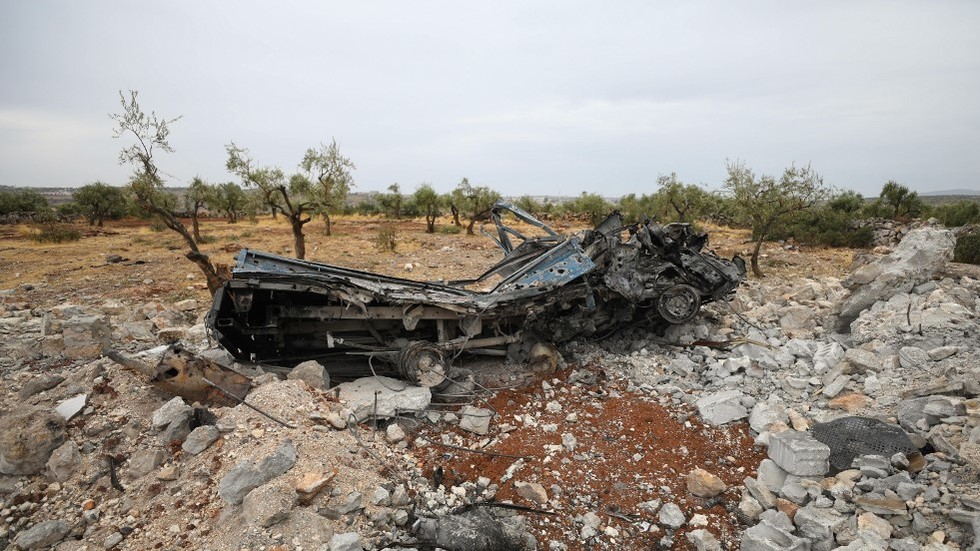
The site of a suspected US-led operation against Islamic State (IS) chief Abu Bakr al-Baghdadi, Barisha, Syria © AFP / Omar HAJ KADOUR
On Sunday, Trump went on air to announce that the US forces have eliminated al-Baghdadi in “a daring night-time raid” in northwest Syria, involving special forces and aviation assets. He said the terrorist’s body was mutilated and buried underground as he’d blown himself up in a tunnel leading from his hideout, insisting that a DNA test still verified that it was him.
Trump initially promised to release a video of the raid, but the Pentagon later said that it had disposed of al-Baghdadi’s remains at sea and have no plans to share any videos or photos.
Shortly after the address, Russia’s Defense Ministry doubted Trump’s words, saying that it didn’t record any US coalition airstrikes in the area when the raid was said to have been carried out. It also poured cold water on Trump’s claims that Russian forces had opened up the airspace under its control in Syria to American warplanes, so that they could reach al-Baghdadi’s compound.
This was an episode that called for restraint, as it is not the first time the death of Al Baghdadi has been announced, only to be later proven wrong. The Guardian had him paralyzed with a severe spinal injury after an airstrike in April 2015, Syrian state TV reported him dead in June 2017, Iranian TV said he was “definitely dead” and the Russians claimed as much again, all in the same month.
In July 2017 he was pronounced dead once more, then alive and then, to clear the matter up, a year later, he emerged from obscurity with a new propaganda video.
So, while Trump described watching the fugitive “whimpering and crying and screaming all the way” to his death, why not just hold back a tick until we’re offered some more substantial information?
While we do not want to see the sort of televised barbarism that befell Muammar Ghaddafi or Saddam Hussein, some irrefutable proof, shared with the watching world, that the remains are those of Al Baghdadi, would be welcome.

Sushma Swaraj, India's former foreign minister dies
Sushma Swaraj, one of India's best known politicians, has died.
Ms Swaraj, who served as foreign minister for five years, suffered a cardiac arrest on Tuesday, the Press Trust of India said.
She was a popular minister in Narendra Modi's first term as prime minister, but did not contest parliamentary elections earlier this year.
She became known for helping Indians stuck abroad by responding to them on Twitter.
Ms Swaraj, 67, had been suffering from poor health and had a kidney transplant in 2016.
She was cremated with full state honours in the capital Delhi. Senior leaders across political parties and BJP lawmakers, including Prime Minster Narendra Modi, attended the funeral.
The news of her death prompted an outpouring of grief and condolences both from fellow politicians and from Indians across the globe.
"A glorious chapter in Indian politics comes to an end," Mr Modi said on Twitter.
"India grieves the demise of a remarkable leader who devoted her life to public service and bettering lives of the poor. Sushma Swaraj Ji was one of her kind, who was a source of inspiration," he said.
"Shocked & saddened to hear of the passing away of Sushma Ji," Sri Lanka's Minister of Finance and former Foreign Minister Mr. Mangala Samaraweera said.
"India has lost a great leader & SriLanka a dear friend," he added.
Page 11 of 41
